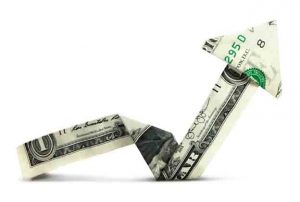The dollar has risen in value dramatically this year, thanks in large part to the efforts of the Federal Reserve to increase interest rates. This aims at curbing the present sky-high inflation by making it more expensive to borrow money.

Furthermore, investors adopt the best forex arbitrage software to quickly correct any temporary pricing inefficiencies. Yet, a strong dollar is not necessarily a positive thing, especially for investors. This guide will provide all you should know. Keep on reading!
What Makes a Dollar Strong?
A strong dollar implies that the value of dollars with respect to other currencies is high. On its own, it is impossible for a currency to be considered weak or strong. The strength of a currency depends on its value with respect to another currency.
The US Dollar Index represents a reliable metric that can help investors understand the relative strength of the dollar to other currencies. In recent times, the performance of the US Dollars has been strong. As of December 1 2022, the value of the US dollar relative to other major currencies are:
USD/EUR: One dollar will buy 0.959226 euros today. A year ago, one dollar would only buy 0.8620.
USD/JPY: One dollar buys 136.4677 yen now, compared to 114 yen a year ago.
USD/CHF: One dollar buys 0.9592 Swiss francs today, compared to 0.91 a year ago
GBP/USD: One dollar will buy 0.82427 British pounds.
USD/CAD: One dollar buys C$1.3429 now, versus C$1.24 a year ago
As inflation shows no sign of stopping, the federal reserve will keep raising interest rates. As a result, the US Dollar will likely maintain its strong performance.
How Does a Strong Dollar Affect Investors?
There are many ways through which a strong dollar can affect investors. Some of these are explained in this section.
U.S. financial assets may become less attractive to foreign investors.
It is worth pointing out that a strong dollar can raise the costs of local currency of US financial assets. This could compromise the strength of new flows into US bonds and stocks.
Furthermore, it is not impossible for foreign investors to be confronted with high pressure to repatriate their holdings – based in the United States – to enjoy profits related to currency. This is particularly true when local opportunities become available.
Currency extremes are never good for corporate earnings
Companies that have business dealings in other countries can have the value of their foreign profits significantly dented. This is especially true when the profits are translated back into dollars.
Also, the competitiveness of American companies across the globe is at risk. This is because products have become more expensive in terms of local currencies. As global demands start becoming slower, this factor will become more keenly felt.
Trade deficits are a serious issue
It is no stretch to affirm that a strong dollar contributes to trade deficits. There is an average deficit in the US trade balance, which is almost $1 trillion every year. This represents about 5% of the gross domestic product of the country. This is happening at a time when the entire United States debt is higher than 100% of the GDP.
The purchasing power of US consumers of foreign assets could be sustained when dollar strength becomes persistent. As these deficits widen, the domestic financial conditions can become tighter.
Conclusion
As the federal reserve keeps raising the interest rate – in an effort to reduce inflation – the US Dollar can only become stronger in value. As a result, investment portfolios can become affected. Investors must manage their risks by including international assets that are more affordable.








